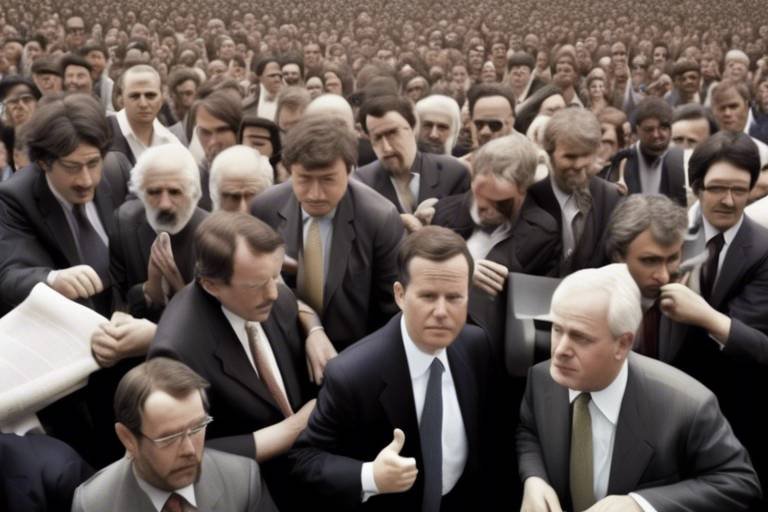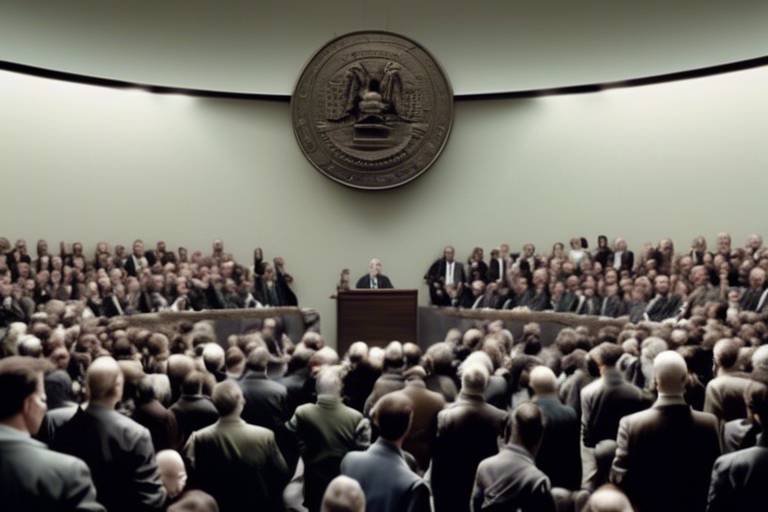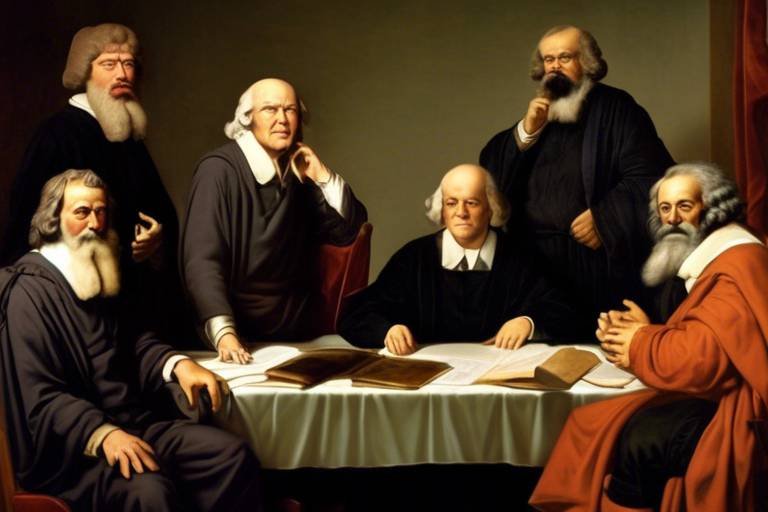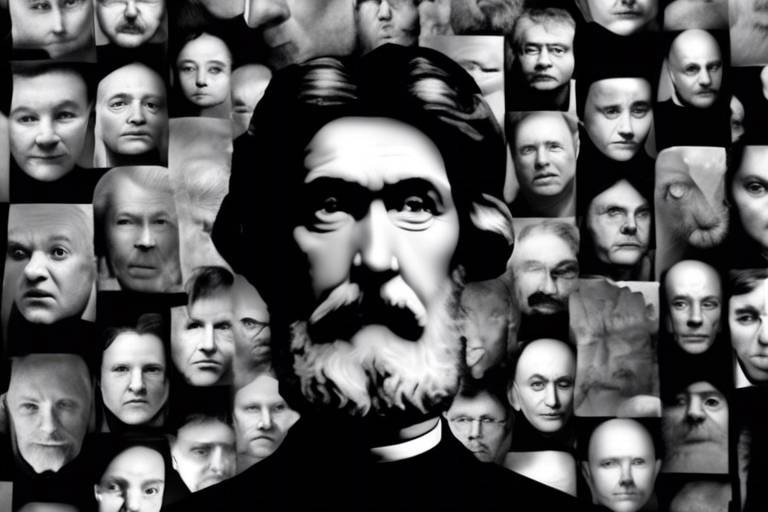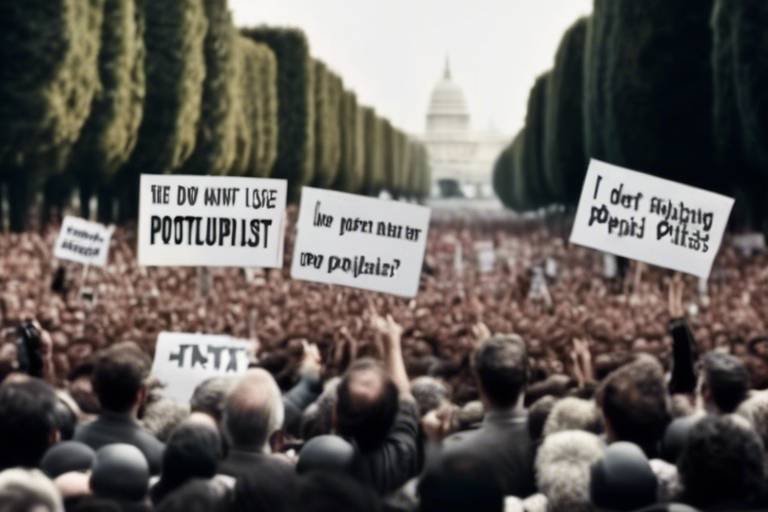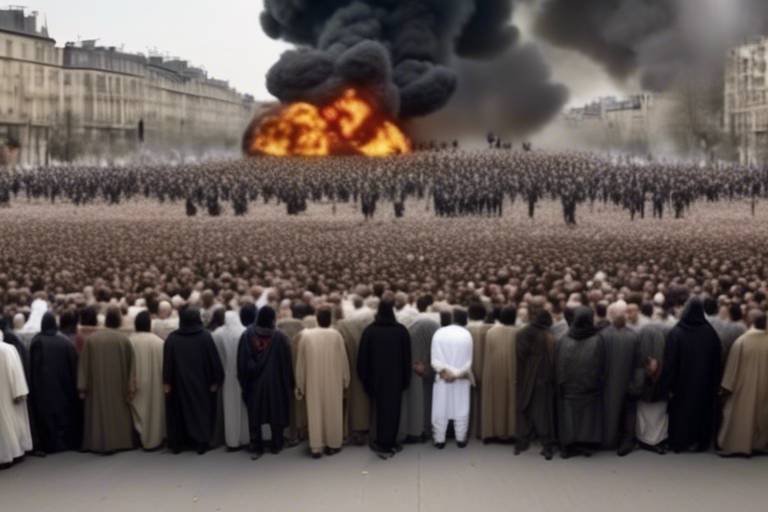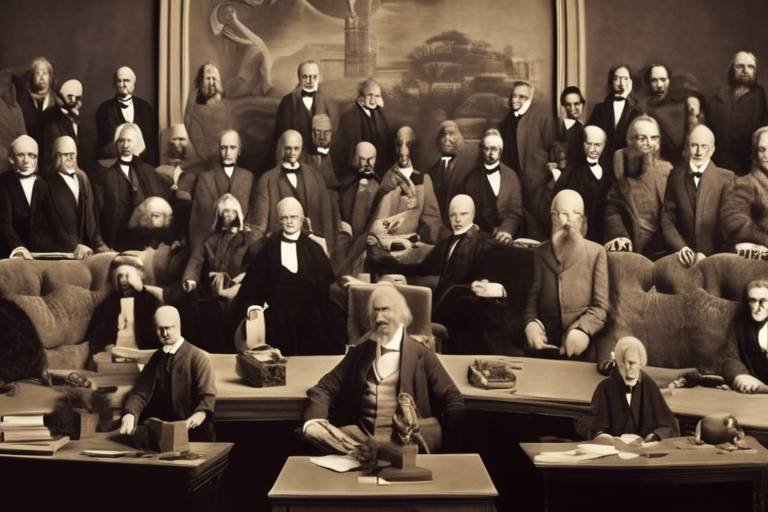Michel Foucault's Philosophy and Its Political Implications
Michel Foucault, a towering figure in 20th-century philosophy, has left an indelible mark on the way we understand power, knowledge, and society. His work challenges us to rethink traditional frameworks, pushing the boundaries of how we perceive authority and governance. In this article, we will explore the intricate relationship between Foucault's philosophical ideas and their profound political implications. From the concept of power to the nuances of biopolitics, Foucault's theories continue to resonate in contemporary thought and social practices, prompting us to question the very fabric of our societal structures.
Foucault's understanding of power is nothing short of revolutionary. Unlike the conventional view that sees power as a top-down force wielded by a select few, Foucault argues that power is diffuse, omnipresent, and deeply embedded in the fabric of society. He suggests that power is not merely repressive but also productive, shaping identities, discourses, and social norms. This perspective invites us to consider how power operates in everyday interactions and institutions, revealing the subtle ways it influences our lives.
In examining power dynamics, Foucault challenges us to rethink governance. Instead of viewing power as a commodity that can be possessed, he presents it as a network of relationships that permeate all levels of society. This leads to a deeper understanding of how authority is exercised and contested, prompting critical questions about who holds power and how it is maintained. Are we merely subjects of power, or can we actively shape our own realities?
In his seminal work, Discipline and Punish, Foucault analyzes the transformation of punishment and surveillance in modern societies. He argues that the shift from sovereign power—exemplified by public executions—to disciplinary power reflects a broader change in societal control mechanisms. Instead of overt violence, modern governance relies on subtle forms of surveillance and normalization to regulate behavior.
This evolution of punishment raises important questions about the implications for social behavior. As individuals internalize societal norms, they become self-regulating, often without realizing it. The mechanisms of discipline are so ingrained that they shape our perceptions of right and wrong, freedom and constraint. Foucault's insights compel us to ask: How do these systems of control affect our autonomy and agency?
Foucault introduces the concept of biopolitics, which examines how states manage populations through various means, such as healthcare, education, and social welfare. This regulation of life itself reflects a shift in governance, where the focus is not merely on the administration of territory but on the optimization of human life. Biopolitics raises critical questions about individual autonomy and the role of the state in our personal lives.
In contemporary governance, biopolitical strategies can be seen in policies that aim to enhance public health or manage demographic trends. However, these interventions also raise concerns about surveillance and control. Are we sacrificing our freedoms for the sake of societal well-being? Foucault's exploration of biopolitics challenges us to consider the balance between state intervention and individual rights.
The concept of governmentality further reshapes our understanding of political authority. Foucault posits that modern governments exercise control not just through laws and coercion but through shaping the conduct of individuals. This involves fostering a sense of responsibility among citizens, encouraging them to manage their own lives in accordance with societal norms.
Governmentality invites us to reflect on our roles as citizens. Are we active participants in our governance, or do we passively accept the frameworks imposed upon us? This question is crucial in an era where political engagement is often limited to voting, yet the mechanisms of control extend far beyond the ballot box.
Foucault's insights into surveillance reveal its critical role in maintaining social order. In an age dominated by technology, the mechanisms of surveillance have evolved, permeating our daily lives through social media, data collection, and state monitoring. This omnipresence of surveillance raises significant ethical concerns about privacy and autonomy.
As we navigate a world where our actions are constantly monitored, Foucault's work prompts us to consider the implications of living under surveillance. How does this affect our behavior? Are we more compliant, or does it foster a sense of resistance? Understanding the dynamics of surveillance is essential for grappling with the complexities of modern governance.
Foucault famously posits that where there is power, there is also resistance. This idea underscores the dynamic nature of power relations, suggesting that individuals and groups can challenge and subvert dominant structures. Resistance can take many forms, from grassroots movements to artistic expressions, reflecting the diverse ways people assert their agency.
In political discourse, recognizing the potential for resistance is vital. It highlights the importance of dissent and the role it plays in shaping societal change. Foucault encourages us to view resistance not as a mere reaction to power but as an integral part of the power dynamic itself. This perspective empowers individuals to recognize their potential to effect change, fostering a more engaged and active citizenry.
Foucault emphasizes the intricate relationship between knowledge and power, arguing that discourse shapes our understanding of reality. Knowledge is not neutral; it is produced within specific contexts and serves particular interests. This challenges us to critically examine the sources of our knowledge and the narratives that dominate our societies.
In political contexts, the production of knowledge influences social norms and ideologies. Foucault's work invites us to question who controls knowledge and how it is disseminated. Are we merely passive consumers of information, or can we challenge the dominant narratives that shape our understanding of the world?
Foucault's concept of the archive highlights the importance of historical context in understanding power relations. The archive is not just a repository of documents; it is a site of power where certain narratives are preserved while others are marginalized. This raises essential questions about the construction of history and the implications for contemporary political thought.
By examining historical narratives, we can uncover the biases and assumptions that shape our current understanding of power. Foucault encourages us to engage with history critically, recognizing that our present is deeply intertwined with the past. This awareness can empower us to challenge dominant historical narratives and advocate for more inclusive perspectives.
In his later work, Foucault shifts focus to ethics and the formation of the self. He explores how individuals construct their identities within societal frameworks, challenging conventional notions of moral responsibility. This inquiry into subjectivity raises important questions about how we define ourselves in relation to power and authority.
Foucault's ideas prompt us to consider the complexities of identity in political contexts. How do societal expectations shape our self-perception? Can we cultivate a sense of authenticity in a world that often imposes rigid identities? By engaging with these questions, we can better understand the interplay between power, identity, and ethics.
- What is the main idea behind Foucault's concept of power?
Foucault argues that power is not just held by a few individuals but is pervasive and embedded in social relationships, influencing our behaviors and identities. - How does Foucault's work relate to modern surveillance?
Foucault's insights into surveillance highlight its role in maintaining social order, raising concerns about privacy and autonomy in an increasingly monitored society. - What is biopolitics, according to Foucault?
Biopolitics refers to the ways in which states regulate populations through various means, focusing on the management of life itself rather than just territory. - How can resistance manifest in response to power?
Resistance can take many forms, including grassroots movements, art, and social activism, challenging dominant power structures and advocating for change.
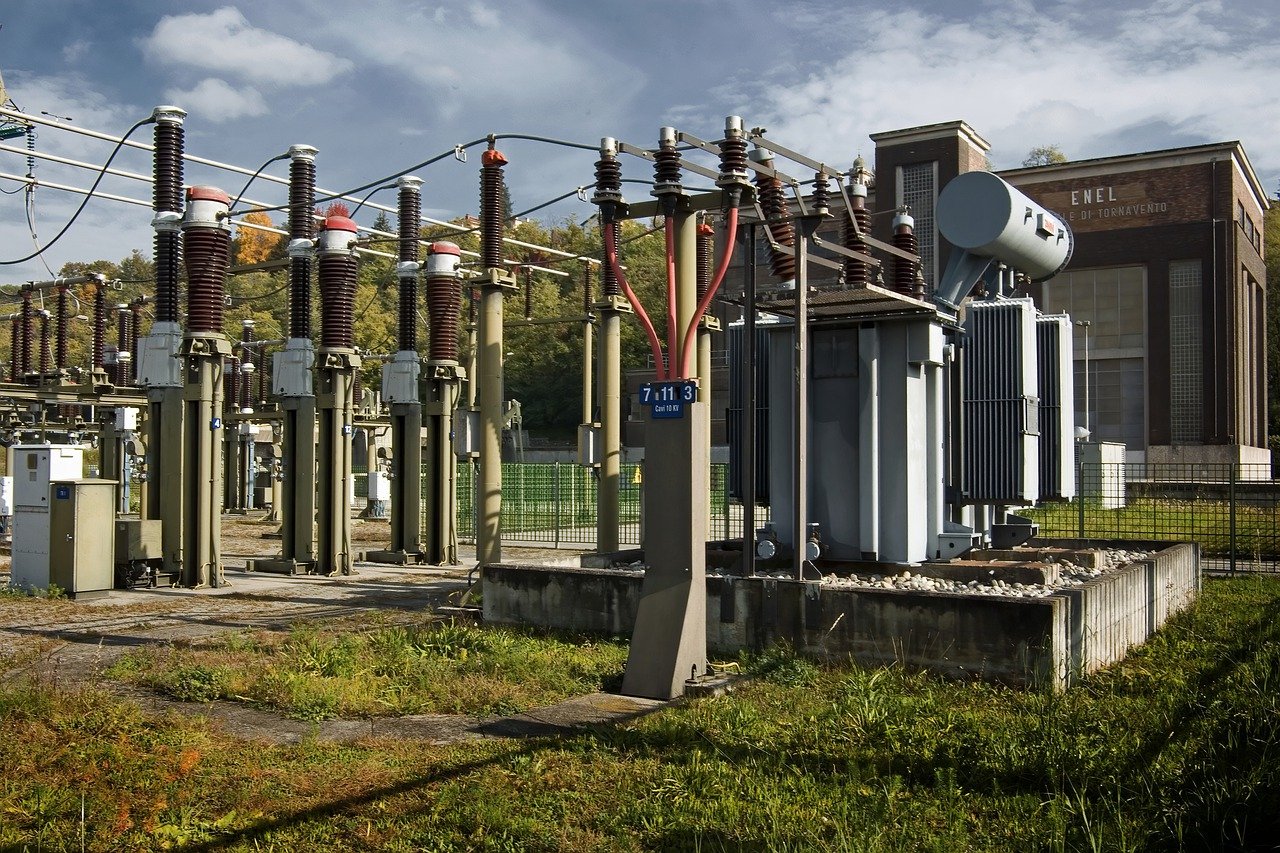
The Concept of Power
When we think about power, it's easy to picture a figure sitting atop a throne, wielding authority with an iron fist. But Michel Foucault flips this traditional image on its head. He argues that power is not merely something held by a few individuals; rather, it is a complex web of relationships that permeates every level of society. This understanding of power as diffuse and pervasive challenges the conventional view that power is only about domination and control. Instead, Foucault invites us to consider how power operates within social structures, influencing our behaviors, beliefs, and identities.
Foucault's perspective on power can be summarized in a few key ideas:
- Power is everywhere: It is not localized in institutions or individuals but is present in everyday interactions.
- Power is relational: It exists in the relationships between people and groups, constantly shifting and evolving.
- Power produces knowledge: Rather than merely repressing, power shapes what we know and how we understand the world.
This conception of power has profound implications for governance and social practices. For instance, Foucault suggests that power is exercised through various means, including laws, institutions, and cultural norms. It does not just repress individuals; it also constructs identities and social realities. By examining how power operates, we can better understand the mechanisms that govern our lives and shape our societies.
To illustrate this further, consider the way social norms dictate behavior. From the way we dress to how we communicate, these norms are not just arbitrary rules; they are manifestations of power dynamics at play. Foucault's ideas compel us to question the origins of these norms and the implications they have on our freedom and autonomy. Are we truly making our own choices, or are we merely conforming to the expectations set by those in power?
In essence, Foucault's analysis of power encourages a more nuanced understanding of authority and resistance. He argues that where there is power, there is also resistance. This means that individuals and groups are not just passive subjects; they actively negotiate and contest the power structures that seek to define them. This dynamic interplay creates a vibrant political landscape where new ideas and movements can emerge, challenging the status quo.
Ultimately, Foucault's concept of power is a call to awareness. It urges us to recognize the subtle ways in which power operates in our lives and to question the narratives that shape our understanding of reality. By doing so, we can begin to see the potential for change and the possibility of forging new paths in our social and political landscapes.
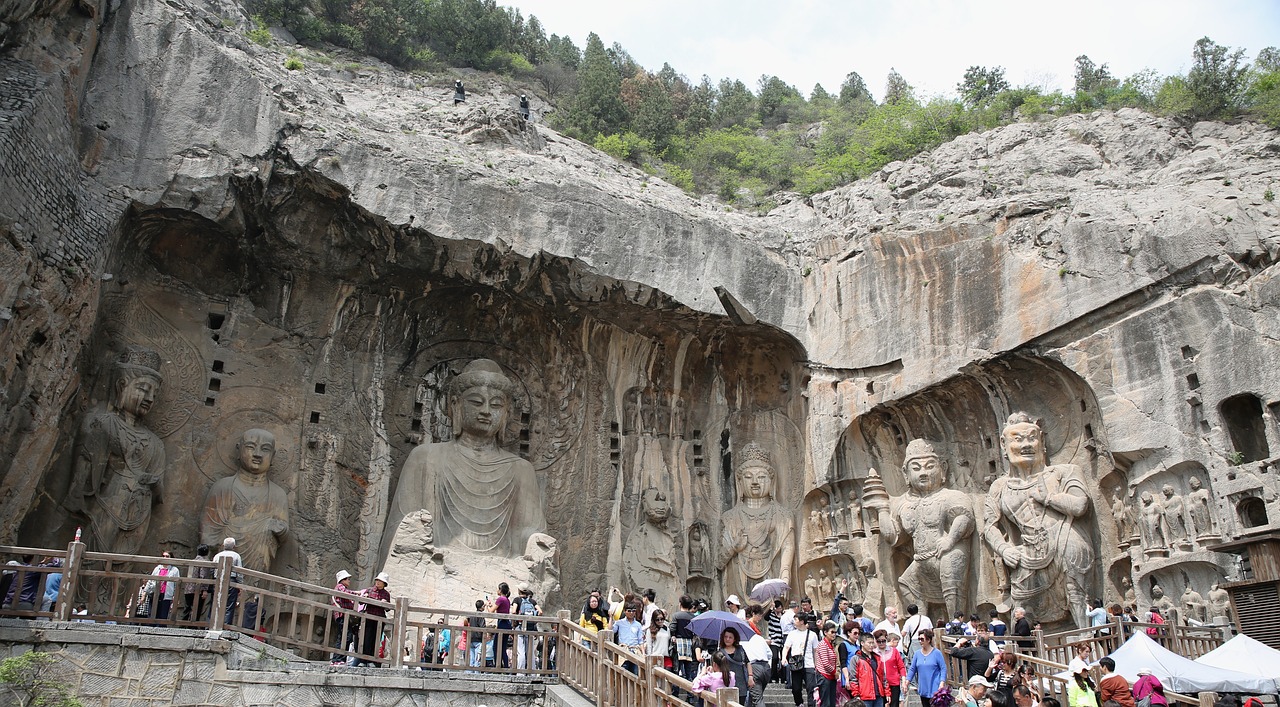
Discipline and Punish
In , Michel Foucault presents a compelling analysis of the evolution of punishment and surveillance in modern societies. He invites us to reconsider the very fabric of our social structures, revealing how the mechanisms of control have transformed over time. Rather than merely focusing on the act of punishment itself, Foucault dives deep into the underlying systems that govern behavior, suggesting that **power** is not just something that is wielded by the state but is instead a pervasive force that permeates every aspect of our lives. This notion challenges us to think critically about the ways in which we are constantly being observed and regulated.
Foucault begins by tracing the historical transition from public executions, which were once spectacles of punishment meant to deter crime through fear, to a more insidious form of control that operates in the shadows. He argues that modern punishment has shifted from a focus on the body to a focus on the mind, emphasizing the importance of discipline in shaping individual behavior. This shift is not just a change in tactics; it represents a fundamental transformation in how society views justice and order. The state employs various institutions—such as prisons, schools, and hospitals—to instill discipline and normalize behavior, effectively creating a society that is self-regulating.
Foucault's analysis reveals that this system of surveillance is not merely about watching; it’s about creating a **panopticon** effect, where individuals internalize the gaze of authority and begin to regulate their own behavior. The concept of the panopticon, originally proposed by Jeremy Bentham, is a metaphor for modern disciplinary societies. In this structure, a single guard can observe all inmates without them knowing whether they are being watched. This uncertainty compels individuals to conform to expected norms and behaviors, leading to a form of self-discipline that is more effective than any external coercion.
As we reflect on Foucault’s insights, we can see that the implications of his work extend far beyond the prison walls. The mechanisms of surveillance and discipline are embedded in our daily lives, from the ways we are monitored online to the societal expectations that dictate our actions. Here are a few key points to consider:
- Normalization: Society establishes norms that dictate acceptable behavior, and deviations from these norms are often met with social sanctions.
- Self-Regulation: The internalization of societal expectations leads individuals to monitor their own actions, often without realizing it.
- Institutional Power: Institutions such as schools and workplaces play a crucial role in reinforcing these norms and behaviors.
Foucault’s examination of punishment also raises important questions about **justice** and **morality**. If punishment is no longer about retribution but rather about control and normalization, what does that mean for our understanding of justice? Are we merely cogs in a machine designed to maintain social order? These questions challenge us to rethink our assumptions about authority and the role of the individual within society.
In conclusion, serves as a powerful reminder of the subtle yet pervasive nature of power in our lives. Foucault's work encourages us to remain vigilant and critical of the systems that govern us, urging us to recognize our own role in perpetuating or resisting these structures. The implications of his theories continue to resonate today, as we navigate a world increasingly defined by surveillance, discipline, and control.
- What is the main argument of Foucault in Discipline and Punish?
Foucault argues that modern punishment has shifted from physical punishment to a more psychological form of control that emphasizes surveillance and discipline. - How does Foucault define power?
Foucault defines power as diffuse and pervasive, existing in all social relationships rather than being concentrated in a single authority. - What is the significance of the panopticon in Foucault's work?
The panopticon serves as a metaphor for modern surveillance, illustrating how individuals internalize the gaze of authority and self-regulate their behavior. - How do Foucault's ideas apply to contemporary society?
Foucault's insights are relevant in understanding modern issues such as data surveillance, social media monitoring, and institutional control over individual behavior.

Discipline and Punish,
Foucault's understanding of power challenges traditional notions, suggesting it is diffuse and pervasive rather than concentrated. This section delves into his ideas on power dynamics within society and their implications for governance.
Discipline and Punish is one of Foucault's seminal works, where he meticulously analyzes the evolution of punishment and surveillance within modern societies. Rather than viewing punishment solely as a means of retribution, Foucault invites us to consider it as a complex social mechanism that serves to reinforce power structures. He illustrates how the transition from public executions to more subtle forms of discipline reflects a broader shift in societal attitudes towards control and order. In this sense, punishment becomes less about the act itself and more about the societal implications and the power relations it enforces.
Foucault argues that modern societies have moved from a punitive model that is overt and brutal to one that is insidious and pervasive. This shift can be seen in the way institutions—like prisons, schools, and hospitals—function as mechanisms of surveillance and discipline. They not only punish but also normalize behavior, shaping individuals to conform to societal expectations. For example, consider how schools impose discipline through rules and regulations. Students are constantly monitored, and their behavior is corrected, not just for the sake of order, but to produce compliant citizens.
Furthermore, Foucault introduces the concept of the panopticon, a theoretical prison design by Jeremy Bentham that allows a single guard to observe all inmates without them knowing whether they are being watched. This model serves as a powerful metaphor for modern surveillance practices. In today's digital age, the panopticon is not just a physical structure but a pervasive reality. With the rise of technology, we are constantly being watched—whether through social media, surveillance cameras, or data tracking. This raises critical questions about our autonomy and the implications of living under such scrutiny.
In essence, Foucault's analysis in Discipline and Punish reveals how punishment is not merely a reaction to crime but a tool for social control. It shapes our behavior, defines acceptable norms, and ultimately reinforces the power of institutions. This understanding compels us to reflect on our own roles within these systems and the ways we can challenge or reinforce them.
Foucault introduces the concept of biopolitics, exploring how states regulate populations through various means. This subsection examines its implications for contemporary governance and individual autonomy.
Governmentality refers to the way governments exercise control over the population. This section investigates how this concept reshapes our understanding of political authority and citizen subjectivity.
Foucault's insights on surveillance reveal its role in maintaining social order. This section discusses the implications of surveillance in modern society, particularly in the age of technology.
Foucault posits that where there is power, there is resistance. This section explores the forms of resistance that emerge in response to power structures and their significance in political discourse.
Foucault emphasizes the relationship between knowledge and power, arguing that discourse shapes our understanding of reality. This section discusses how knowledge production influences social norms and political ideologies.
Foucault's concept of the archive highlights the importance of historical context in understanding power relations. This subsection examines how historical narratives shape contemporary political thought.
Foucault's later work focuses on ethics and the formation of the self. This section explores how his ideas on subjectivity challenge conventional notions of identity and moral responsibility in political contexts.
- What is the main argument of Foucault's Discipline and Punish?
Foucault argues that modern punishment has evolved from overt brutality to more subtle forms of discipline, which serve to reinforce societal norms and power structures.
- How does Foucault's concept of the panopticon relate to modern surveillance?
The panopticon serves as a metaphor for modern surveillance, illustrating how individuals are constantly monitored in contemporary society, affecting their behavior and autonomy.
- What role does resistance play in Foucault's philosophy?
Foucault posits that resistance is inherent wherever power exists, highlighting the dynamic relationship between power and opposition in political discourse.

Foucault analyzes the evolution of punishment and surveillance in modern societies. This section discusses how these mechanisms shape social behavior and reinforce power structures.
In his seminal work, Discipline and Punish, Michel Foucault meticulously examines the evolution of punishment and surveillance in modern societies, revealing a profound transformation in how power is exercised. Gone are the days when punishment was a public spectacle, where the body of the condemned was displayed for all to see. Instead, Foucault argues that we have entered an era characterized by subtlety and surveillance, where control is exerted not through overt violence, but through a complex network of social mechanisms that shape behavior from within.
Foucault's analysis begins with the historical shift from punitive justice to a system of discipline. In the past, punishment was often brutal and direct. Think of the gallows or the stocks—these were public reminders of the consequences of transgression. However, as societies evolved, so did their methods of control. Foucault suggests that modern punishment has become more about regulating behavior than simply meting out justice. This shift is not merely a change in technique; it represents a fundamental transformation in the very nature of power. Power is no longer something that is held by a few and wielded over many; instead, it is diffuse, embedded within the very fabric of society.
Surveillance plays a crucial role in this new paradigm. Foucault famously uses the metaphor of the Panopticon, a theoretical prison designed by Jeremy Bentham, to illustrate how surveillance operates in modern contexts. The architecture of the Panopticon allows a single guard to observe all inmates without them knowing whether they are being watched. This uncertainty creates a self-regulating behavior among the prisoners, as they internalize the gaze of authority. In contemporary society, this idea extends beyond prisons. We are constantly under observation—by the state, corporations, and even each other—through various means such as social media, cameras in public spaces, and data collection.
As a result, individuals become both the subject and the object of power. We internalize societal norms and expectations, adjusting our behavior accordingly. This is where Foucault's insight into the relationship between power and social behavior becomes particularly striking. He argues that power is not just repressive; it is productive. It shapes our identities, our desires, and even our moral frameworks. We are not merely acted upon by power; we actively participate in our own regulation. This dynamic creates a society where individuals are conditioned to conform, often without realizing it.
Moreover, the mechanisms of punishment and surveillance reinforce existing power structures. Those in positions of authority utilize these tools to maintain control and perpetuate their dominance. Foucault's work prompts us to question: Who benefits from this system? The answer often lies in the very institutions that wield power—governments, corporations, and social organizations that thrive on compliance and order. This leads to a critical examination of how societal norms are established and maintained, raising important questions about freedom, autonomy, and resistance.
In conclusion, Foucault's exploration of punishment and surveillance reveals a complex interplay between power and social behavior. By understanding these mechanisms, we gain insight into how our identities are formed and how we navigate the world around us. As we reflect on these ideas, it becomes evident that the challenge lies not only in recognizing the structures of power but also in finding ways to resist and redefine them.
- What is the main idea of Foucault's "Discipline and Punish"?
Foucault's main idea revolves around the evolution of punishment from physical, public displays to more subtle forms of discipline and surveillance that shape behavior and reinforce power structures. - How does Foucault's concept of surveillance apply to modern society?
Foucault's concept of surveillance highlights how individuals are constantly observed, leading to self-regulation and conformity, which are essential in maintaining social order. - What is the significance of the Panopticon in Foucault's analysis?
The Panopticon serves as a metaphor for modern surveillance, illustrating how the possibility of being watched influences behavior and creates a self-regulating society.

Biopolitics
Michel Foucault's concept of is a fascinating lens through which we can examine the intricate relationship between power and life itself. In essence, biopolitics refers to the strategies and mechanisms through which governments regulate human life, focusing on populations rather than individuals. This marks a significant shift from traditional forms of governance that primarily targeted sovereign power and law. Instead, biopolitics emphasizes the management of life—health, reproduction, and even mortality—by the state. Have you ever considered how your health records might be monitored or how public health policies shape your daily life? This is where Foucault's ideas come to life.
At the heart of biopolitics lies the notion that power is not just repressive but also productive. It creates norms and standards that govern our existence, subtly influencing our behaviors and choices. For instance, consider how public health campaigns promote certain lifestyles while stigmatizing others. These campaigns often use data and statistics to create a narrative that shapes our understanding of what it means to live a 'healthy' life. In this way, the state exercises control over the population through a myriad of practices that may seem benign on the surface but have profound implications for individual autonomy.
Foucault also highlights the importance of population management in biopolitics. This includes various techniques such as:
- Health surveillance and monitoring
- Vaccination programs
- Public health initiatives
- Reproductive policies
These practices illustrate how the state attempts to optimize the health and productivity of its citizens, often under the guise of welfare. However, this raises critical questions: At what point does the regulation of life become intrusive? How much control should the state have over individual choices?
Moreover, Foucault's analysis of biopolitics extends to the concept of individual autonomy. While the state seeks to manage populations, it simultaneously creates a framework within which individuals must navigate their identities and choices. This duality can lead to a complex relationship between freedom and control, where individuals may feel empowered yet constrained by societal expectations and norms. Thus, understanding biopolitics is not just about recognizing the mechanisms of power but also about interrogating the ways in which we resist and redefine our subjectivities.
In contemporary society, the implications of biopolitics are more relevant than ever. With the rise of technology and data analytics, governments and corporations can monitor and influence behaviors on an unprecedented scale. Think about how social media platforms collect data on your preferences and behaviors, shaping advertisements and even political campaigns. This technological advancement raises ethical questions about privacy, consent, and the extent of state intervention in our lives.
Ultimately, Foucault's concept of biopolitics invites us to reflect on the delicate balance between governance and individual freedom. It challenges us to consider how power operates in our everyday lives and the ways in which we can assert our agency within these structures. As we navigate the complexities of modern life, Foucault's insights serve as a powerful reminder of the ongoing interplay between power, knowledge, and the very essence of what it means to be human.
- What is biopolitics? Biopolitics refers to the strategies and mechanisms through which governments regulate human life, focusing on populations rather than individuals.
- How does biopolitics affect individual autonomy? While biopolitics aims to manage populations, it creates a framework that can empower individuals yet constrain them through societal norms and expectations.
- What are some examples of biopolitical practices? Examples include health surveillance, vaccination programs, public health initiatives, and reproductive policies.
- Why is Foucault's concept of biopolitics relevant today? In the age of technology and data analytics, understanding biopolitics helps us navigate issues of privacy, consent, and the extent of state intervention in our lives.

Governmentality
When we dive into the concept of , we’re not just scratching the surface of political theory; we’re peeling back the layers of how power operates within societies. Coined by Michel Foucault, this term encapsulates the myriad ways in which governments exert control over populations, shaping not just policies but the very fabric of our daily lives. Imagine a puppet master pulling strings, but instead of visible puppets, we have citizens whose behaviors and thoughts are subtly guided by a complex web of governance.
At its core, governmentality is about the art of governing—not merely in the political sense, but in a broader context that includes the management of the self and others. Foucault argues that this form of governance extends beyond the traditional institutions of power, such as the state, and infiltrates various aspects of social life, including education, healthcare, and even the economy. This means that power is not just something wielded by politicians; it’s also embedded in the everyday practices and discourses that shape our identities and choices.
To illustrate this, consider the following dimensions of governmentality:
- Regulation of Behavior: Governments implement policies that guide individual behavior, from public health campaigns to educational curricula, effectively molding societal norms.
- Self-Regulation: Citizens internalize these norms, leading to a form of self-governance where individuals monitor their own behavior according to societal expectations.
- Surveillance: The mechanisms of surveillance, as discussed by Foucault, create an environment where individuals feel watched, prompting them to conform to established norms.
This multifaceted approach to governance raises important questions about citizen subjectivity. How do we, as individuals, navigate a world where our thoughts and actions are influenced by a complex interplay of power relations? Foucault posits that understanding governmentality is crucial for recognizing the subtle ways in which authority operates, allowing us to become more aware of the forces shaping our lives.
Moreover, the implications of governmentality extend to contemporary issues such as social justice and individual autonomy. As we grapple with the challenges of modern governance—be it through policy-making, public health, or even digital privacy—we must critically engage with the ways in which power is exercised and resisted. Foucault’s insights encourage us to question not only who holds power but also how it is used to shape our realities.
In summary, governmentality is a lens through which we can examine the intricate relationship between power and individual agency. By understanding how governance influences our lives, we can better navigate the complexities of modern society and advocate for a more equitable distribution of power. So, the next time you feel the weight of societal expectations or governmental policies, remember that these are not just abstract concepts; they are the very forces that shape who we are and how we live.
- What is governmentality? Governmentality refers to the way governments exercise control over populations, encompassing both direct governance and the subtle influences on individual behavior.
- How does Foucault's concept of governmentality apply today? It helps us understand contemporary issues like surveillance, regulation of behavior, and the internalization of societal norms in our daily lives.
- Why is understanding governmentality important? It allows individuals to recognize the dynamics of power at play in society, fostering greater awareness and potential resistance to oppressive structures.

Surveillance and Society
In today's world, the concept of surveillance has evolved into a complex web that intertwines with our daily lives, often in ways we don't even realize. Michel Foucault's insights into surveillance provide a profound understanding of how power operates in society. He argued that surveillance is not merely about watching; it's about creating a system of control that shapes behavior and enforces norms. Imagine a panopticon, a prison design where inmates can be watched at any time without knowing when they are being observed. This metaphor encapsulates the essence of modern surveillance, where the mere possibility of being watched influences how individuals conduct themselves.
Foucault's analysis reveals that surveillance extends beyond the physical realm into the digital landscape. Today, we live in an age where our actions are constantly monitored through various means, from social media platforms to government databases. The implications of this are staggering. It raises questions about privacy, autonomy, and the very nature of freedom. Are we truly free if our every move is tracked and analyzed? The answer is not straightforward, as surveillance can serve both beneficial and detrimental purposes.
Consider the following implications of surveillance in society:
- Normalization of Behavior: Surveillance encourages conformity, as individuals adjust their actions to meet societal expectations, often without realizing it.
- Criminalization of Dissent: In a heavily surveilled society, those who challenge the status quo may be labeled as threats, leading to increased repression.
- Data as Power: The collection of personal data empowers governments and corporations, shaping public discourse and influencing political decisions.
The rise of technology has further complicated the landscape of surveillance. With the advent of smartphones, social media, and the Internet of Things, our lives are more transparent than ever. Foucault's ideas prompt us to question who benefits from this transparency and at what cost. Are we trading privacy for security? Are we willingly submitting to a system that monitors our every action? These are critical questions that echo through contemporary debates on surveillance.
Moreover, Foucault emphasizes that surveillance is not merely a top-down phenomenon. It also manifests in self-surveillance, where individuals internalize societal expectations and regulate their own behavior. This self-policing can lead to a culture of compliance, where dissent becomes rare and conformity reigns supreme. The implications of this are profound, as it suggests that power is not just imposed from above but is also produced through our own actions and choices.
As we navigate this intricate web of surveillance, it is crucial to engage in discussions about its ethical implications. How do we balance the need for security with the preservation of individual freedoms? What role does technology play in shaping our understanding of privacy? Foucault's work encourages us to critically examine these questions, fostering a deeper awareness of the power dynamics at play in our society.
- What is the main idea behind Foucault's concept of surveillance?
Foucault's concept of surveillance highlights how power operates through observation, shaping behavior and reinforcing social norms. - How does modern technology affect surveillance?
Modern technology has intensified surveillance, making it easier to monitor individuals and collect vast amounts of data. - What are the implications of self-surveillance?
Self-surveillance can lead to conformity and compliance, as individuals internalize societal expectations and regulate their own behavior.

Resistance and Counter-Conduct
When we dive into Michel Foucault's philosophy, we quickly realize that his notion of power isn't just about domination; it's also about the resistance that inevitably arises in response to it. Foucault famously stated, "where there is power, there is resistance," suggesting that power is not a monolithic force but rather a network of relationships that can be challenged and contested. This idea opens up a fascinating dialogue about how individuals and groups can push back against the systems that seek to control them. Think of it as a dance; for every move made by the powerful, there’s a counter-move from those who resist. It's this dynamic interplay that shapes our social landscape.
Resistance can take many forms, from overt protests and rebellions to more subtle acts of defiance. For instance, consider the various movements that have emerged throughout history, such as the civil rights movement or the feminist movement. These movements exemplify the power of collective resistance against oppressive systems. In contemporary society, resistance can manifest in everyday actions—like choosing to shop locally instead of supporting large corporations or using social media to raise awareness about social injustices. Each of these actions disrupts the status quo, creating ripples that challenge established power structures.
Foucault also introduces the concept of counter-conduct, which refers to the ways in which individuals and groups resist not just the power of others but also the ways they govern themselves. This self-governance can be seen in practices such as mindfulness, self-care, and even political activism. By actively choosing how to conduct their lives, individuals can subvert the expectations imposed upon them by societal norms. It’s about reclaiming agency in a world that often seeks to define who we are and how we should behave. In this sense, counter-conduct is both a personal and political act.
To further illustrate this concept, let’s look at a few examples of resistance and counter-conduct:
- Grassroots Movements: Local organizations often form to combat specific issues, such as environmental degradation or social inequality, showcasing how community-driven initiatives can challenge larger systems.
- Art as Resistance: Artists have historically used their craft to critique power structures, from protest songs to politically charged street art, encouraging others to question and resist.
- Digital Activism: In today’s world, social media platforms serve as powerful tools for mobilization and awareness, allowing voices that might otherwise be silenced to be heard.
In essence, Foucault’s exploration of resistance and counter-conduct encourages us to rethink our relationship with power. It reminds us that while power can be pervasive and all-encompassing, it is never absolute. There are always cracks in the facade, opportunities for dissent, and avenues for change. By understanding the mechanisms of power and the ways we can resist, we empower ourselves to shape our own destinies and challenge the systems that seek to govern us.
What is Foucault's view on power?
Foucault sees power as a complex network of relationships that is diffuse and pervasive, rather than concentrated in a single authority. He believes power is everywhere and is exercised through various social institutions.
How does resistance manifest in society?
Resistance can take many forms, including protests, grassroots movements, art, and digital activism. It is a response to power structures and can be both overt and subtle.
What does counter-conduct mean?
Counter-conduct refers to the ways individuals resist not only external power but also the internalized norms and expectations that govern their behavior. It is about reclaiming personal agency.
Can resistance lead to social change?
Yes, resistance can lead to significant social change. Historical movements have shown that collective action and individual acts of defiance can challenge and transform existing power structures.

Knowledge and Discourse
Michel Foucault's work on knowledge and discourse presents a compelling framework for understanding how power operates in society. At the heart of his philosophy is the idea that knowledge is not merely a collection of facts; rather, it is a dynamic force that shapes our perception of reality. Foucault argues that knowledge and power are intertwined, creating a complex relationship that influences everything from social norms to political ideologies. This means that what we come to accept as 'truth' is often a reflection of dominant discourses that are constructed and maintained by those in power.
Foucault's exploration of discourse reveals that language is not just a tool for communication but a medium through which power is exercised. Discourse shapes our understanding of who we are, what is deemed acceptable, and how we relate to one another. For instance, consider how medical discourse has evolved over time. The way we talk about health and illness has profound implications for how individuals experience their bodies and seek treatment. This is not merely academic; it has real-world consequences for people's lives and identities.
To illustrate this point further, let's look at a few key areas where knowledge and discourse intersect:
- Social Norms: The narratives we construct around gender, race, and sexuality are heavily influenced by dominant discourses. These norms dictate behavior and expectations, often marginalizing those who do not conform.
- Political Ideologies: Political rhetoric is crafted through discourse, shaping public opinion and influencing policy decisions. The way issues are framed can mobilize support or incite opposition.
- Historical Context: Understanding the historical context of knowledge production is crucial. Foucault emphasizes that history is not a linear progression but a series of discontinuities that shape our current understanding of power and knowledge.
Foucault also introduces the concept of the archive, which he defines as the set of rules and norms that govern the production of knowledge in a given society. This archive is not just a collection of documents; it is a framework that determines what can be known and who gets to know it. By examining the archive, we can uncover the underlying power structures that inform our understanding of various discourses.
In essence, Foucault's analysis of knowledge and discourse compels us to question the very foundations of our beliefs and the systems that uphold them. It invites us to consider how knowledge is constructed and the implications this has for our understanding of identity, morality, and society as a whole. As we navigate a world increasingly defined by information overload and competing narratives, Foucault's insights remain strikingly relevant, prompting us to critically assess the sources of our knowledge and the power dynamics at play.
In summary, Foucault’s examination of knowledge and discourse challenges us to rethink our assumptions about truth and authority. By recognizing the fluid nature of knowledge and its relationship with power, we can better understand the complexities of our social world and the role we play within it.
- What is Foucault's view on knowledge? Foucault sees knowledge as intertwined with power, suggesting that what we consider 'truth' is often shaped by dominant discourses.
- How does discourse influence society? Discourse shapes our understanding of social norms, political ideologies, and personal identities, often marginalizing those who do not conform to dominant narratives.
- What is the significance of the archive in Foucault's work? The archive represents the rules governing knowledge production, revealing the power structures that inform our understanding of various discourses.

The Archive and History
Michel Foucault's concept of the archive is not just a simple collection of documents or historical records; rather, it serves as a powerful lens through which we can examine the intricate web of power relations that have shaped our societies. By focusing on the archive, Foucault invites us to consider how knowledge is constructed and how historical narratives are formed. It's fascinating to think about how what we deem as "history" is often filtered through the biases and perspectives of those in power. This means that the archive is not just a repository of facts, but a dynamic site where power and knowledge intersect.
In Foucault's view, the archive plays a crucial role in determining what is considered valid knowledge. The selection of materials that comprise an archive can shape societal norms and political ideologies significantly. For example, who gets to decide which documents are preserved? Which voices are amplified, and which are silenced? These questions highlight the political implications of archiving and historical representation. Foucault argues that understanding these processes is vital for grasping how power operates in society.
Moreover, Foucault's exploration of the archive leads us to recognize the importance of historical context in shaping contemporary political thought. The ways in which we interpret past events are influenced by the discourses that prevail in our current society. For instance, consider how different nations remember wars or revolutions. The narratives constructed around these events can either reinforce existing power structures or challenge them, depending on who controls the narrative.
To illustrate this point further, let's consider the following table that summarizes how archives can influence our understanding of history:
| Aspect | Influence of the Archive |
|---|---|
| Selection of Documents | Determines which perspectives are highlighted or ignored. |
| Representation of Voices | Can amplify marginalized voices or reinforce dominant narratives. |
| Historical Interpretation | Affects how events are understood and remembered over time. |
Ultimately, Foucault's analysis of the archive urges us to remain critical of the histories we accept as truth. It challenges us to question the dominant narratives and explore alternative histories that may be buried within the archives. By doing so, we can gain a more nuanced understanding of how power operates and evolves over time.
In a world where information is at our fingertips, Foucault's insights into the archive remind us that the act of remembering is inherently political. As we navigate through the layers of history, we must remain vigilant about the sources we trust and the narratives we choose to embrace. After all, history is not just a record of what has happened; it is a battleground for the future we are collectively shaping.
- What is Michel Foucault's concept of the archive? Foucault's concept of the archive refers to the collection of documents and records that shape our understanding of history and power relations.
- How does the archive influence political ideologies? The archive influences political ideologies by determining which narratives are preserved and which voices are amplified, thereby shaping societal norms.
- Why is historical context important in Foucault's philosophy? Historical context is crucial because it affects how we interpret past events and understand their implications for contemporary society.

Ethics and Subjectivity
Michel Foucault's exploration of ethics and subjectivity presents a fascinating lens through which we can understand the formation of self in relation to political contexts. Unlike traditional views that often link ethics with universal moral codes, Foucault invites us to consider the ways in which our sense of self is shaped by historical, cultural, and social dynamics. He argues that our identities are not fixed but are instead fluid, constantly being negotiated within the frameworks imposed by society.
At the heart of Foucault's philosophy is the idea that subjectivity is constructed through various practices and discourses. This means that who we are is influenced not just by our inner thoughts and feelings but also by the external forces that dictate acceptable behaviors and beliefs. For instance, consider how societal norms around gender, sexuality, and morality can shape our understanding of ourselves and our ethical responsibilities. Foucault challenges us to ask: How much of our identity is truly ours, and how much is dictated by the world around us?
Foucault also emphasizes the importance of ethics as a practice rather than a set of rules. He suggests that we should focus on the ways we can cultivate our own ethical frameworks through practices of freedom and self-care. This approach encourages individuals to engage in self-reflection and to question the norms that govern their lives. In essence, Foucault's perspective on ethics is about becoming an active participant in the formation of one's own identity rather than passively accepting societal constructs.
Moreover, Foucault's later work shifts towards the concept of “technologies of the self,” which are practices that individuals use to transform themselves in pursuit of a more ethical existence. These technologies include various forms of self-discipline, reflection, and care that empower individuals to shape their own identities. This idea resonates with contemporary discussions about personal responsibility and the ways in which we can actively engage with our ethical beliefs in a world that often feels chaotic and oppressive.
In summary, Foucault's insights into ethics and subjectivity challenge us to reconsider how we construct our identities and ethical beliefs. By recognizing that our subjectivity is influenced by a myriad of factors, we can begin to understand the power dynamics at play in our lives. This understanding can lead to a more nuanced approach to ethics, one that acknowledges the complexities of identity and the ongoing negotiation of self within the political landscape.
- What is Foucault's view on ethics? Foucault sees ethics as a practice of self-formation rather than a set of universal moral laws, emphasizing the importance of individual agency.
- How does Foucault define subjectivity? He defines subjectivity as a fluid construct influenced by historical and social dynamics, challenging the notion of a fixed identity.
- What are "technologies of the self"? These are practices individuals use to shape their own identities and ethical beliefs, emphasizing self-care and reflection.
- How does Foucault's work relate to contemporary issues? His ideas on ethics and subjectivity encourage critical engagement with societal norms, making them relevant in discussions about personal responsibility and identity today.
Frequently Asked Questions
- What is Michel Foucault's view on power?
Foucault redefines power as something that is not just held by a few but is spread throughout society. He believes that power is everywhere and comes from various sources, influencing individuals and institutions in complex ways. This perspective challenges traditional hierarchical views of power, suggesting that it operates through relationships and social norms.
- How does Foucault's concept of discipline relate to punishment?
In his work "Discipline and Punish," Foucault examines how modern societies have shifted from overt forms of punishment to more subtle mechanisms of control and surveillance. He argues that these practices shape behavior and reinforce societal norms, making individuals more compliant and aware of their actions within a structured environment.
- What is biopolitics, and why is it important?
Biopolitics refers to the ways in which governments regulate populations through policies and practices that affect life and health. Foucault's exploration of this concept reveals how state power extends into the personal lives of individuals, influencing everything from healthcare to reproductive rights. This has significant implications for understanding autonomy and governance in contemporary society.
- Can you explain governmentality?
Governmentality is Foucault's term for the various ways governments exercise control over their citizens. It encompasses not just political authority but also the ways in which individuals govern themselves. This concept reshapes our understanding of citizenship and the responsibilities individuals have in relation to authority.
- What role does surveillance play in Foucault's philosophy?
Foucault highlights surveillance as a critical tool for maintaining social order. He argues that in modern society, surveillance has become pervasive, influencing behavior and reinforcing power structures. This is especially relevant today, as technology enables constant monitoring and data collection, raising questions about privacy and autonomy.
- How does Foucault's idea of resistance manifest in society?
Foucault posits that resistance is inherent wherever power exists. This means that individuals and groups will always find ways to challenge and push back against oppressive structures. Understanding these forms of resistance is crucial for political discourse, as they can lead to social change and the reconfiguration of power dynamics.
- What is the relationship between knowledge and power in Foucault's work?
Foucault argues that knowledge and power are intertwined, with each shaping the other. Discourses—ways of talking and thinking about the world—are not just reflections of reality but actively construct it. This means that the production of knowledge can reinforce social norms and political ideologies, making it a powerful tool in the hands of those who wield it.
- What is the significance of the archive in Foucault's philosophy?
Foucault's concept of the archive emphasizes the importance of historical context in understanding power relations. He suggests that how history is recorded and remembered influences contemporary political thought. By examining these narratives, we can better understand the dynamics of power and how they have evolved over time.
- How does Foucault approach ethics and subjectivity?
In his later work, Foucault focuses on ethics and the formation of the self. He challenges conventional notions of identity and moral responsibility, suggesting that our subjectivity is shaped by social practices and power relations. This perspective encourages individuals to critically examine their own beliefs and behaviors in relation to broader societal influences.



